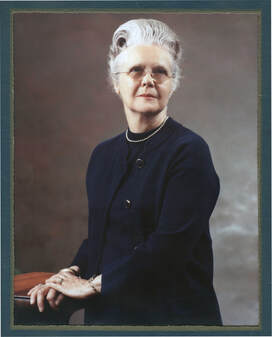
Inadvertently, I laughed. “I wrote only what you told me about her!” I said.
“Yes, but….”
I hadn’t meant to laugh at his heartfelt words, but it did strike me as amusing that he was giving me credit for writing down the description of his aunt’s life and his relationship with her exactly as he had reported it. Why was it that reading it had moved him to tears, if what I had captured were merely his own sentiments?
But as I contemplated the question further, it began to seem more profound than just my taking credit where no credit was due. Somehow the many years he’d spent remembering his aunt, and also the substantial funds he’d donated to the program she founded and the tributes he’d paid to her in numerous ways over many decades, hadn’t affected him the same way the chapter I wrote reflecting his feelings had.
And I think this paradox reflects in some way the value of our work as memoirists. Books are, after all, one of humanity’s oldest forms of communication – not as old as the spoken word, but far more permanent. And far older than podcasts or social media posts or even oral histories preserved in any number of audio formats.
So when my client saw his ruminations on his aunt in book form, it was different for him from any of those past tributes, and he instinctively gave me credit for having created a new testimonial to her. It did not feel to me like I deserved the credit. The testimonial was all his doing – I simply created pages out of his thoughts.
But pages, it turns out, are one of our most profound media. Pages, books, words printed on paper, feel meaningful in a way no other form of communication does. Yes, it was true that my client had expressed his admiration and appreciation in many ways over the years for the smart, enterprising, courageous aunt who helped him through the grief of his own mother’s death when he was a teenager, who took him on vacations throughout the U.S. when he was young, who stood in for his mother when he got married. But he was still touched anew when he saw the chapter.
And actually, this often feels true of the memoir process. My background as a journalist reminds me that my job is to capture the client’s thoughts as faithfully as possible, and that the final product should be nothing more than a written record of what the client told me, albeit with some shaping and polishing, because that’s the privilege of a memoir writer as opposed to a journalist. So it sometimes surprises me when clients react with absolute delight – or with tears. It’s not like they didn’t know what was going into the book, I think to myself. It’s the very same story they told me.
But somehow it’s different. A story told is important, but a story written is timeless. Auntie Belle’s story exists now not only in the memories and anecdotes passed from one generation to the next but as an actual chapter of an actual book, that anyone can pick up and read any time.
We did it together, I finally tell him. The recollections were yours. I just crafted it into text. But no matter how you parse the responsibilities, the end result is a chapter paying tribute to Auntie Belle. And the fact that the chapter exists, in print, in a book, is what has moved my client to tears.

 RSS Feed
RSS Feed